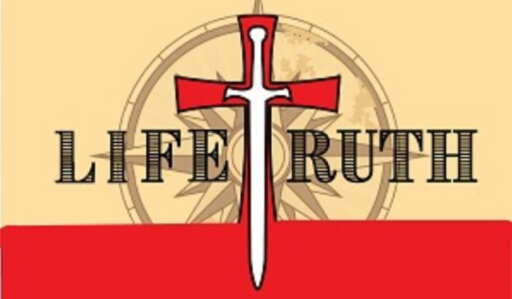Diving into John 10:22-42, we visit Jesus in the temple while he celebrated Hanukkah.

Verse 22 states it was the feast of dedication. This winter festival is also known as the feast of lights. Hanukkah. To recap a little bit, earlier in autumn, he was at the feast of booths where he:
- delayed arriving, after his brothers left.
- He taught in the temple, that he was sent from the father, and did only what the father showed him.
- Though Jewish leaders sought to seize him, no man laid a hand on him.
- Temple guards reported that no man had ever spoken like him. Pharisees were angered, and Nicodemus tried to talk sense to them.
- The adulterous Woman was forgiven. Jesus continued teaching the truth, that he is from the father and is going where they can’t come.
- Jesus repeats he is known by the father. Was to be stoned by Jews in the temple, but he evaded them.
- He sees a blind man and heals him. The man was then cast out of the temple after being interrogated by the religious leaders.
- Outside the temple, Jesus teaches lessons on sheep, the good shepherd, thieves, and robbers.
- The result from the religious elite? There were divisions, claiming he has a demon.
John underscores the time and place. It was winter and Jesus was teaching on Solomon’s colonnade. The porch was commonplace for staying sheltered from the summer sun or the Winter chill. He caught the attention of the religious elite who put him on the spot to ask him to stop keeping them in suspense. They demanded he tells them openly and plainly whether he was the promised Messiah.
As demonstrated in my brief bullet statements, Jesus had been clear enough about who he was, that he was nearly stoned for it twice. He humors them again by reminding his challengers that he has already told them, but they refuse to believe. Besides his teaching and verbal claims, he has reinforced it with signs and miracles. His deeds are a testimony to back up his claims.

- In chapter 5 he healed a lame man.
- In chapter 6, he fed 5000 men, not counting women and children.
- Chapters 7 and 8 find him forgiving the sin of the adulterous woman, and after teaching the truth, evading stoning.
- Chapters 9 and 10 find him healing the blind man, and teaching in the temple in the face of his hostile challengers.
Jesus is blunt. He tells them what their problem is, “You do not believe because you are not of My sheep.”
They have eyes but don’t see, ears but don’t hear. If they were indeed his sheep, like real sheep in a fold they would respond to their shepherd’s voice. Their eternal security is promised and assured that none can snatch a sheep from the hand of Jesus. It’s not only Jesus. The promise is that God has granted ownership over the flock to him.
Even these religious leaders knew enough to admit that none is greater than God. Jesus’ authority means that his sheep are also secure in the hand of God.

“I and the Father are one.”
John 10:30 NASB
Time for a Bible Challenge. Did Jesus just claim to be God? Doesn’t he make other claims that he and God are separate personalities? Keith reads a longer solution in the episode from the Big Book of Bible Difficulties, by Geisler and Howe. In short, these claims are not in conflict under the doctrine of the trinity. Jesus is distinct as a person and fully human. This is what qualifies him to pay for the sins of humanity. He is also Devine in essence, making him equal with God. Without this, one perfect life can only pay for one human life. His eternal nature is what qualifies him to pay an eternal price for all humanity.
Is this plain enough language to declare that Jesus is God? The jews thought so. They once again picked up stones to kill him. Jesus didn’t immediately try to evade them. He stood his ground and diverted their attention. He wasn’t only full of talk. He had the works to back him up. He challenged them to point out the works he did that would merit death. It was enough to stop them in their tracks.
Well, of course, Jesus’s deeds were all good. They were going to kill him over the words they didn’t like. It was those inconvenient words that didn’t fit their preconceived rhetoric.
God speaks in signs, so they recognized godly work. They asked him to speak openly, so when he claims to be the same as the father, suddenly it was blasphemy. Why did they bother to demand an answer, then reject it? It was a situation of being “damned if you do, and damned if you don’t.” Jesus still has an appropriate response, based on terms his audience will understand.
Jesus answered them, “Has it not been written in your Law, `I SAID, YOU ARE GODS´?
John 10:34 NASBAnother Bible Challenge. Did Jesus just hint that a human might achieve God’s status? This would be a stretch, and wildly taking Jesus’s words out of context. His purpose was to redirect them to scripture and the fair use of the term. The passage from Psalm dealt with judges who were called by God to do his work and were given this title. While allowing it to be applied to some men, those called to serve God. It isn’t a blanket term to apply to all men/
Once again deflecting the tension, Jesus refers to the law. Even among the Pharisees, it is considered unbreakable and perfect. Sanctified and sent. Jesus has made this claim more than once in his ministry.
he points out the fair use of his word choice.works seal the deal and are proof of being from God. With no works, there would be no obligation to believe. People speak with words; God speaks through action. Jesus is saying, “don’t believe me simply because I said so. Understand the godly works, and that God is at work here.”
It should have met their demands, but it didn’t. They once again wanted to seize him, but he evaded them. It wasn’t his time yet.
Jesus left town and kept going until he returned to where his ministry started. He went back to where John had been baptizing, and where many of John’s followers were still gathering. Though we don’t know much of what John taught, his followers recognized that everything John taught about Jesus was true.
John’s teaching was about repentance. He never had signs, but his followers recognized his solid teaching. Repentance is the first step we take towards salvation. It’s the one thing the people across Jordan had that the religious elite did not. It’s why many of them believed, and the educated leaders did not. repentance paves the way for belief.
Credits
Thanks to the recorded comments from J Vernon McGee. His ministry and daily bible study live on through Through the Bible Ministries (ttb.org)
Scriptures in the show notes and episode are quoted from the King James Version, except when read by Keith, then it’s the NASB.
“Scripture is taken from the NEW AMERICAN STANDARD BIBLE®,
Copyright © 1960,1962,1963,1968,1971,1972,1973,1975,1977,1995
by The Lockman Foundation. Used by permission.”Podcast: Play in new window | Download (Duration: 40:42 — 37.3MB)
Subscribe: Apple Podcasts | Amazon Music | Podchaser | RSS | More

